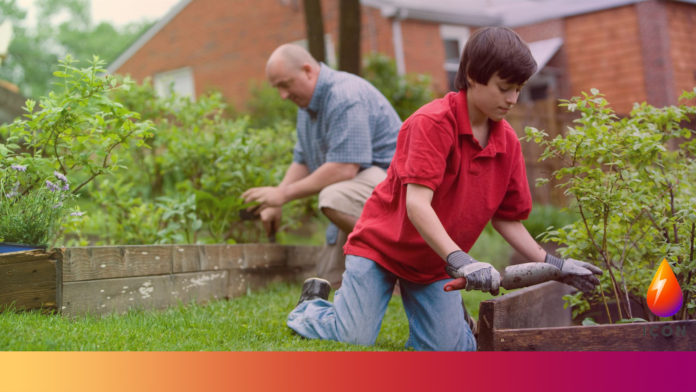
The RSPB is calling for everyone to join ‘the wildlife-planting revolution’ after a YouGov survey revealed that three quarters of people are now doing at least something in their garden or outside space to help wildlife (with 19% trying a lot, 30% trying a fair amount, and 26% trying a little).
The survey, commissioned by the charity as part of their Nature on Your Doorstep campaign, also revealed the wide range of ways that people are already gardening with wildlife in mind – over two in five (43%) consider how a plant can benefit pollinators when choosing what to grow in their garden, just under a quarter (24%) leave areas of grass to grow long for nature, and nearly half of people feed birds (49%).
Adrian Thomas, the RSPB’s wildlife gardening expert, commented on the findings: “I’m thrilled to hear how many people are now taking steps to help wildlife in their gardens and outdoor spaces.
“It feels like a movement is underway in which people are recognising that our gardens can be wonderful, shared spaces for us and for wildlife, to the benefit of all.
“To play your part, the best and easiest place to start is to grow more plants. They provide varied, healthy food sources, and offer shelter and nesting spots. And the lovely thing is that lots of plants that are good for wildlife are also beautiful, colourful and richly scented, making outdoor spaces more welcoming, relaxing, and interesting for all of us to enjoy. –”
With UK gardens and balconies covering over 4,000km2, twice the size of Greater London, all these actions put together create a vital network of refuges for wildlife.
According to the charity, many previously familiar garden species are in decline. For example, starling numbers have fallen by two-thirds in Britain since the mid-1970s, with populations of half of bumblebee species falling, and hedgehog numbers crashing from 30 million to an estimated one million since the 1950s across England, Wales, and Scotland.
When asked in the survey to choose what one thing the participants would most like to do in a new empty outdoor space, half (50%) chose having more plants (either having a wildflower meadow (most popular at 16%), or planting fruit trees (11%), other kinds of trees (6%), shrubs (7%), or space for more flowers (10%)).
The survey also showed the potential for even more people to take up action and welcome wildlife into their gardens. Two thirds of respondents want to see local birds (68%) and pollinators (64%) in their local space, two groups of species that are easily attracted by growing wildlife-friendly plants.
More information about the survey findings is available on the RSPB website.
RSPB also shares more suggestions, tips, and inspiration on wildlife planting on their Nature on Your Doorstep campaign page.